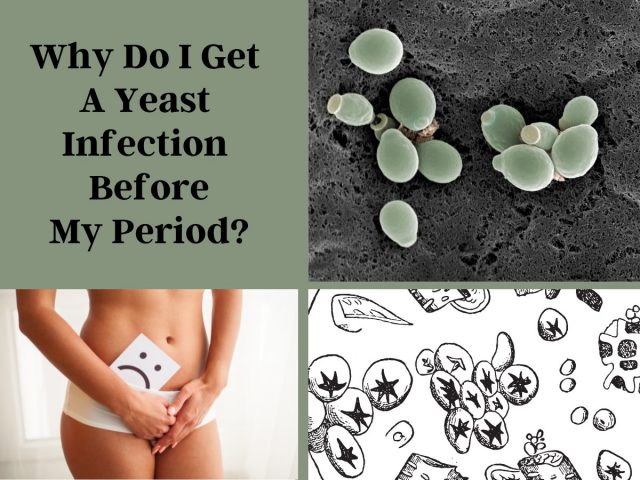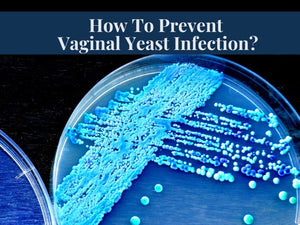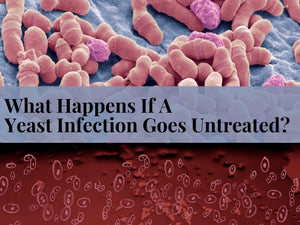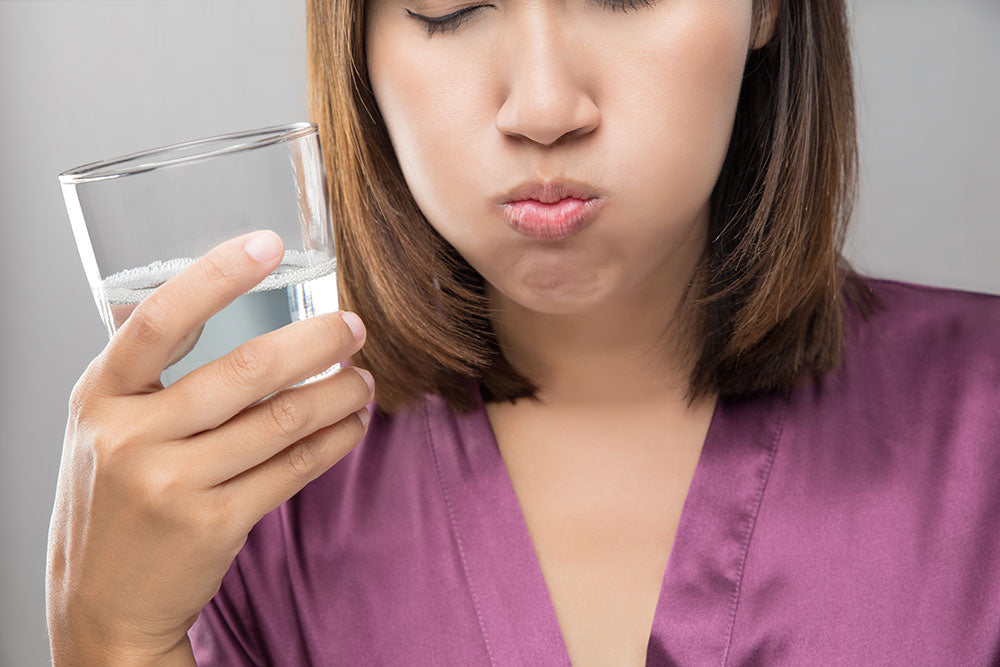It’s common for females of childbearing age to experience yeast infections right before their periods. Due to the lack of education and awareness concerning yeast infections, many women inquire, “Why do I get a yeast infection before my period?” The following description is all bout yeast infections that occur before periods.

Yeast infections, also known as Candidiasis, usually occur due to fluctuations in hormonal levels, particularly right before menstruation. The surge in estrogen levels causes Candida to proliferate rapidly under favorable conditions and cause infections. Limited scientific evidence reveals that three out of ten women experience rapid growth of yeast cells a week before their periods.
Menstrual cramping, mood fluctuations, bloating, and other premenstrual indicators accompanying menstruation are somewhat of a nuisance for several women. But if you also get a yeast infection, your periods may worsen. Vaginal yeast infections are mainly caused by yeast species called Candida albicans. Nevertheless, antifungal treatment-resistant yeast infections are caused by other uncommon fungal strains, such as Candida glabrata and Candida krusei.
Clinical Manifestation
Signs and symptoms of vaginal yeast infections occurring in women before menstruation:
- Irritation and itching in the vagina and vulva
- Redness and swelling of the vagina
- Heavy feeling in the lower abdomen
- Thick white vaginal discharge resembling cottage cheese-like texture
- Vaginal secretions with or without odor
- Dull pain every time
- Sharp burning pain while urinating
- Rash around vagina
Why Do I Get A Yeast Infection Before My Period?
Why do I get a yeast infection right before my period? It is the question that many women ask because some of them get the infection a week before menstruation, while a few experience such distress at the same time of their menstrual cycle. Such regular infections are also known as vulvovaginitis.
Various hormones are raised and decreased during menstruation in the body. Estrogen typically spikes during ovulation and gradually decreases before the menses start. Moreover, progesterone often reaches its maximum as your menstruation approaches. During menses, progesterone and estrogen levels are at their minimum levels. These hormonal fluctuations favor yeast proliferation. Some studies suggest that imbalances in estrogen are linked to the overgrowth of Candida albicans, causing vaginal yeast infections.
Other Causes
Though ninety percent of antifungal treatment-responding vaginal yeast infections are caused by Candida albicans, amongst the total of 200 Candida strains, other less causative species are:
- Candida glabrata
- Candida krusei
- Candida tropicalis
- Candida parapsilosis
Several medical conditions and general health status can increase the incidence of vaginal yeast infections before periods in women. For example, a patient with a weakened immune system due to HIV/AIDS, chronic diseases, or cancer, and people with poor diet and lifestyle are prone to yeast infections. Similarly, patients with diabetes mellitus may get recurrent yeast infections due to the surge in glucose levels in the blood and urine.
Pregnant females and those who are consuming oral contraceptives experience hormonal fluctuations and thus are at risk of developing vaginal yeast infections. Nevertheless, women who use contraceptive devices encounter yeast infections due to unhygienic practices and usage. Prolonged antibiotics also indirectly cause yeast infections. The reason is that antibiotics can kill good bacteria in the vagina that protects it against microbial proliferation, including yeast. Without enough good bacteria, Candida may find the chance to thrive.
Also Read: Yeast Infection: Causes, Symptoms, Diagnostics and Treatment
How Do I Know I Get A Yeast Infection Before My Period? Diagnosis
Physically examine yourself for the signs of vaginal yeast infection. If you find the symptoms first time in your life right before your period, do consult a doctor. Nevertheless, patients with cyclic yeast infections should also seek medical assistance for a pelvic examination. During the examination, your doctor observes the vaginal walls and cervix. Moreover, your physician may examine your vaginal secretions to determine the causative agent for accurate diagnosis and treatment.
Remedies
Depending on the severity of yeast infections, your doctor may recommend OTC, prescription, or dietary modifications to treat the condition. Typically, dietary and lifestyle modifications with our without over-the-counter medicines are prescribed in case of short-term, mild vaginal yeast infections. Nevertheless, moderate to severe yeast infections require prescription medications to eradicate Candida from the vaginal tract.
Conventional Therapy
Conventional therapy includes OTC and prescription medicines, for example, oral and topical analgesics, anti-inflammatories, and antifungals. Common antifungals used are fluconazole, miconazole, terconazole, clotrimazole, and ketoconazole. Moreover, it is advisable not to engage in sexual activities during yeast infection periods, or the symptoms may aggravate brutally.
- Once daily dosing of fluconazole (Diflucan) is effective against short-term mild vaginal yeast infections. However, pregnant females are contraindicated to fluconazole due to its teratogenic activity(causes congenital disabilities)
- Your doctor may treat moderate yeast infections with oral antifungals for about three to seven days.
- Why do I get a severe yeast infection before my period? You can take topical antifungal creams, ointments, pessaries, and oral tablets of miconazole (Monistat) to heal moderate to severe yeast infections effectively.
Alternative Therapy
Alternative therapy includes taking sitz baths with essential oils and herbal teas with various herbs and fruits like cranberries. Some herbal remedies are enlisted below under the section on dietary modifications.

Dietary Modifications
If you say why do I get a yeast infection before I start my period, you should start the following dietary modifications.
Greek Yogurt
Plain greek yogurt contains beneficial probiotics and no added sugars. Therefore, it is the best thing to include in the diet to increase the level of good bacteria in the body to fight against such yeast infections. Eat about four to six ounces daily for effective results.
Other Probiotic Supplements
If plain greek yogurt isn\’t available or you don’t find eating curd enjoyable, try oral probiotic supplements. Oral supplements may take about ten days for visible improvement in the symptoms. However, probiotic inserts for the vagina produce immediate results.
Tea Tree Oil
Due to its antibacterial, antifungal, and antiviral properties, tea tree oil, is effective against many topical infections, including vaginal yeast infections, referring to limited scientific studies. To avoid irritation, you can dilute this essential oil with coconut or jojoba oil. Apply the diluted oil to the vaginal area for about ten minutes. Try this once every week for noticeable results.
Coconut Oil
Limited scientific evidence suggests coconut oil is effective against vaginal yeast infections. Apply pure and organic coconut oil and warm it to the touch for more soothing effects.
Boric Acid Pessaries
Boric acid pessaries are effective when antifungals are not responding well in a patient. Therefore, use boric acid as the last option.
Also Read: What Happens If A Yeast Infection Goes Untreated? Complications And Mangement
Preventions
Some preventions you can adopt:
- Do not wear tight-fitting undergarments
- Do not wear moist and damp clothes
- Properly dry yourself after swimming or bathing
- Avoid douching with scented and chemical products
- Do not wash inside of the vaginal cavity with feminine products during periods
- Do not use tampons if you have a yeast infection during periods
- Always wear cotton underwear that loosely fits your size
- Wipe from front to back
- Wipe, wash, and dry before putting on clothes
- Do not share your bath linen if you are infected
- Avoid sexual activity with a partner or sex toys during periods and with a yeast infection
When To Seek Medical Attention
Did you just say why do I always get a yeast infection before my period? If you regularly experience yeast infections right before your periods or at a particular time during your menstrual cycle, seek medical assistance. Your doctor will diagnose the underlying hormonal issue and will suggest hormonal therapies like seed cycling or something to prevent yeast infections.
Also Read: How Can I Tell If I Have A Yeast Infection? Accurate Diagnosis For Appropriate Treatment

FAQs
Why Do I Always Get A Yeast Infection Before My Period?
It happens because of hormonal fluctuations before periods; consult a gynecologist and read the information mentioned above and instructions to help yourself.
Do Periods Cause Yeast Infections?
Bleeding and unhygienic condition during periods does not cause yeast infections. However, hormonal fluctuations before and during menstruation can cause such infections.
How To Avoid Yeast Infection During My Period?
You can maintain your hormonal levels on average to avoid yeast infections. For this purpose, you should follow a healthy diet, lifestyle, and exercise.
Does My Period Flush Out Yeast Infections?
During periods, the hormones again get back to their normal levels. Therefore, during menses, yeast infections usually eradicate.
Which Is Better For Yeast Infections, Pads Or Tampons?
Pantyliners and pads are better for yeast infections during menstruation. It is because inserting tampons may cause pain and irritation. Changing pads is more manageable than changing tampons when you have yeast infections during menstruation.
What Is The Best Time To Treat A Yeast Infection Before Or After My Period?
You should consult a gynecologist if you always get yeast infections before your periods. Your doctor will recommend a therapy to avoid yeast infections.
Outlook
Periods are the most common time for females of childbearing age to get yeast infections. The hormonal changes during menstruation encourage yeast growth. According to specific research, hormone imbalances may contribute to the growth of Candida albicans, which results in vaginal yeast infections. You should see a gynecologist if you consistently experience yeast infections before your period. Read the information mentioned above to know all about yeast infections before menstruation, or consult a physician who will advise a treatment to stave off yeast infections.













